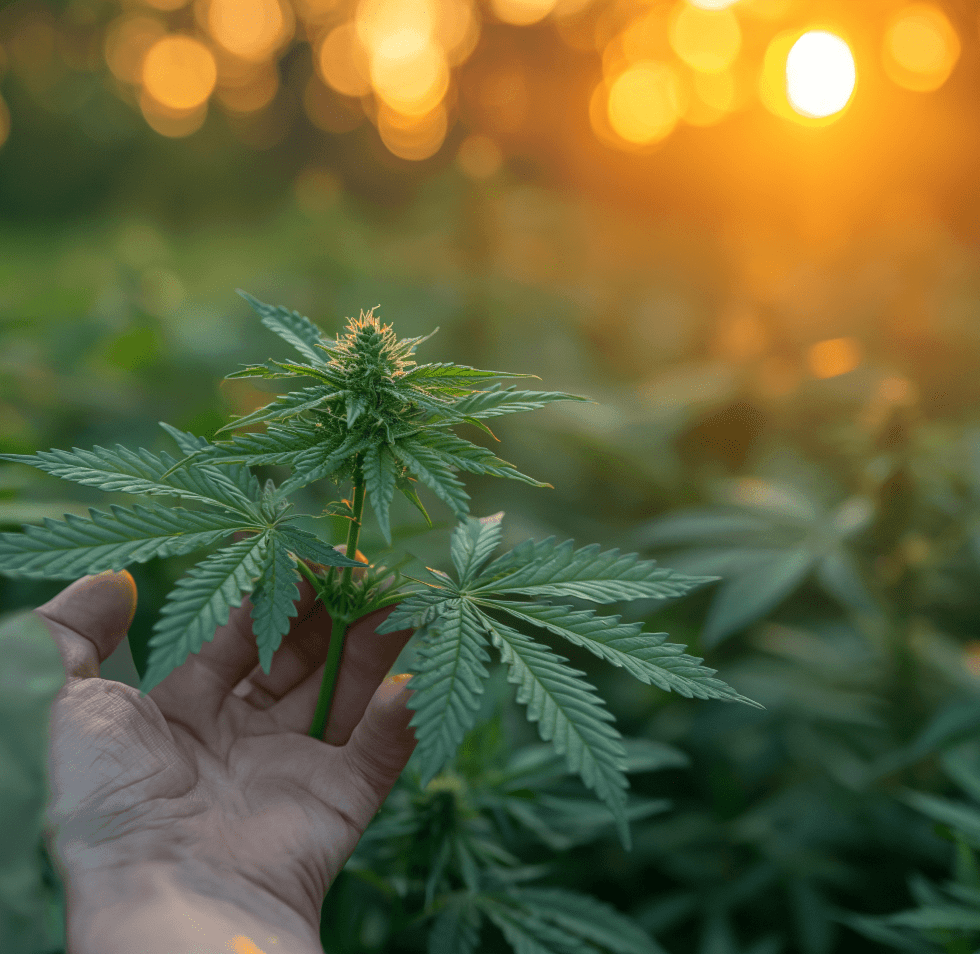Across Australia, there’s been a significant shift amongst hemp farmers towards adopting organic farming practices. Changes in consumer tastes and demand for hemp or CBD products have brought about this shift. More Australians than ever are shopping locally, organically, and with sustainability in mind.

Heightened awareness of individuals’ health and the wider natural environment underlies this shift. Many opt for organic to avoid harmful chemicals like pesticides or herbicides that can contaminate their hemp or CBD oil.
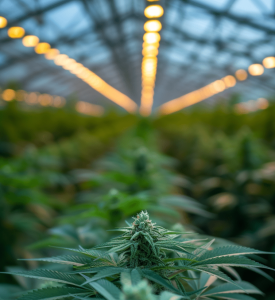
For others, the substantial environmental benefits of organic hemp products are what makes them preferable. Because of these changes, demand for organic CBD products has soared. Farmers of hemp in Australia are struggling to keep up with supply. Many are pivoting their operations to obtain organic certifications to access this growing opportunity. But what is organic hemp, and why are more Australian hemp farmers now choosing to grow it? Let’s delve in.
Contents
Understanding Organic
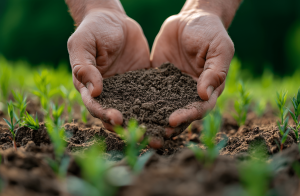
In Australia, ‘organic’ is a set of farming and manufacturing standards. Fundamentally, it aims to avoid using synthetic chemicals and genetically modified crops or animals when producing products from agricultural outputs. This aims to promote environmental sustainability, prevent damage to local ecosystems, and support consumers’ health. Organic principles prioritise smaller-scale, local, community-based commerce instead of mass-scale, volume-based businesses.
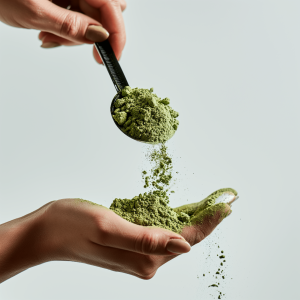
Businesses in Australia can only label or sell their products as ‘organic’ if they’re organically certified. Organic certification indicates a product abides by the organic standards governed by the independent ‘Australian Certified Organic’ body (or ‘ACO’). Only the ACO can register a business or its products as genuinely organic. Getting certified can be challenging. There are stringent rules, standards, and audit requirements involved. The ACO must also approve the assessment of each applicant against their organic benchmark criteria. Ongoing checks are additionally run to verify a given business is maintaining its practices against these benchmarks.
What Makes Hemp Organic?
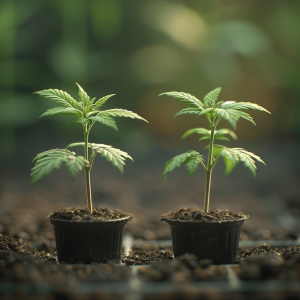
Several key characteristics of organic hemp distinguish it from non-organic hemp types. These include the genetic source of the hemp, how it is farmed, and how it is harvested. Each of these characteristics has specific requirements laid out by Australian Certified Organic that must be met for the hemp (and CBD oil made from it) to be advertised as ‘organic’.
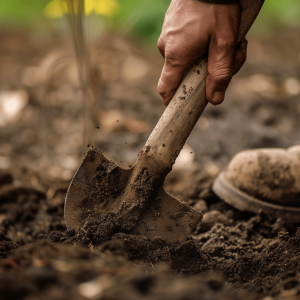
Here are some of the practices that enable hemp to be certified as organic in Australia:
- Non-GMO Seeds: Organic hemp in Australia is grown from non-GMO (genetically modified) hemp cultivars. Genetically modified hemp is thought to contribute to environmental degradation by reducing biodiversity and altering natural gene flow. Many also consider GMO plants to be a source of potential allergies, intolerances, or health problems. Organic hemp growers only use strains of hemp that are ‘wild’ or equivalent to those found naturally.
- Natural Soil Management: organic hemp farming uses soil management practices that avoid using synthetic fertilisers like ammonia nitrate. Instead, naturally made composts, manure, and decomposed wood enrich soils with nutrients. These soils are also tilled more often for aeration and topsoil replenishment. Frequent tilling or mixing of the soil helps prevent fungus or bacterial infection while boosting the soil’s healthy microbe content. Managing soil quality naturally means farmers don’t cause chemical leeching into the surrounding environment or water table. They can synergistically farm hemp in a way that helps microorganisms and life in the soil instead of killing it.
- Chemical-Free: the most important benefit of organic hemp is its avoidance of toxic chemicals during its growth and cultivation. No chemical sprays containing herbicides, fungicides, insecticides or pesticides are used on organic hemp. Instead, natural compounds are often used to help keep pests away. For example, neem or pyrethrum can be concentrated in organic, plant-based pesticide sprays. These help farmers protect their hemp crops without compromising their organic standards through toxic chemicals.
- Sustainable Farming: Multiple organic hemp farming approaches are targeted towards minimising carbon footprint, reducing waste, and conserving the environment. Farmers use careful planning and irrigation practices to minimise water consumption during hemp cultivation. These practices also minimise pollution by preventing chemical run-off from the farm into waterways. Focus is also given to techniques that reduce overall fuel or energy usage to minimise impact on the carbon footprint. Most organic farms aim to be carbon-neutral or even carbon-positive by sequestering more carbon than they output into the environment.
- Audit and Regulation: Because organic is a certification, regular auditing and compliance checks are performed to confirm that a business is maintaining its organic hemp farming standards. This includes inspections, carbon footprint measurement, testing for chemical use, and record checks for the farming operation.
As you can see, the time, effort, and cost of producing organically certified hemp are substantial. However, for most organic hemp farmers, the principles of preventing environmental or health harm to society are well worth the effort. It also enables the production of purer, safer, organic CBD oil.
Growth of Organic Hemp Farming in Australia
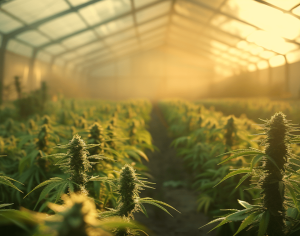
Organic hemp farming in Australia has quickly developed into a burgeoning part of the agricultural sector. For over a decade, the industry has rapidly expanded by 16.5% per year on average.
While most industrial hemp producers are focused on consumables like hemp foods, hemp oil, CBD oil or hemp powders, commercial items are also seeing demand rise. More consumers and retailers in Australia are now looking for organic hemp fabrics, fibres, cosmetics, topicals, and more. These developments mean the supply of organic hemp to feed consumer industries is immense.

It has led to increasing numbers of existing hemp farmers getting their organic certification and attracting new farmers into the sector. Australian organic hemp cultivators range from small-scale grassroots farms to large commercial farming operations using advanced machinery. Let’s take a deeper look at why the popularity of organic hemp is growing among farmers in Australia today.
Why Are Farmers Switching to Organic?

Beyond the increased demand for organic hemp products mentioned, several other factors have contributed to the attractiveness of organic hemp crops for farmers.
- Consumer Health Consciousness: Many people in Australia perceive organic as ‘healthier’. This view isn’t unfounded. Fears regarding agricultural chemical exposure, GMO intolerances, allergies to artificial additives, and the nutrient variety in hemp foods are common. Peace of mind about health through choosing CBD products only sourced from organic hemp is a big reason these are favoured today.
- Environmental awareness: shoppers today want products to reflect their values. Regarding sustainability values, caring for nature, reducing pollution, and mitigating climate change are at the top of my mind. The increase in earth-conscious shoppers has affected the hemp and CBD industry significantly. Demand for organic CBD products is outpacing that of non-organic varieties. Moreover, many farmers are highly cognisant of their operation’s environmental effects and aim to reduce their impacts. Short-sighted, harmful agricultural techniques using chemicals that ruin the land are increasingly being looked down on. Organic farming is often better from a business, environmental, and farming standpoint.
- Organic Premiums: Organic CBD or hemp products are safer, purer, and command higher prices. This has caught the eye of many farmers who understand the economic opportunities that organic hemp can bring. Supply constraints in Australia have added to this dynamic, shaping certified organic hemp into a high-value cash crop.
- Government Support: Multiple Australian states now support organic farms through grants, subsidies, and other incentives. Growing research on organic agriculture indicates that it generates efficient crop yields over time without sacrificing soil, water, and air quality. The Australian government is funding more research into sustainable farming methods that support the local economy.
These economic, social, and even Government policy drivers are driving more farmers to produce organic crops, including hemp. Organic hemp, in particular, offers additional benefits to consumers and society more broadly. Let’s take a look at these.
Sustainability Benefits of Organic Hemp
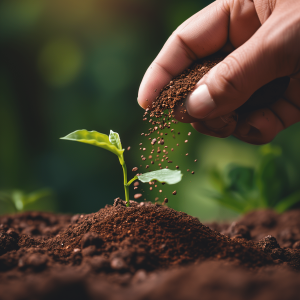
Sustainability is the fundamental tenet of the organic movement and the primary benefit that can be unlocked through organic hemp cultivation. While most people perceive sustainability as concerned with the environment, this is only part of the picture. Sustainability incorporates economic, environmental, ecological, and social factors. It’s slated towards a long-term view of how an activity, business, or practice will affect each area. Organic hemp farming methods heavily prioritise sustainability in crop development and agricultural commerce. Let’s review its benefits.
Soil Health
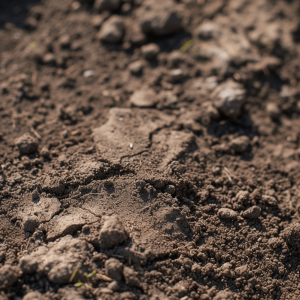
A benefit of organic hemp farming is that it enriches the soils used to grow hemp instead of depleting it. Soil is highly bioactive and contains a plethora of microorganisms that create nutrients for plant life to thrive. This natural soil microbiome is delicate. It can quickly be disrupted or killed off when exposed to harsh toxic chemicals. Unfortunately, this is a common occurrence with traditional hemp farming methods. Intensive usage of chemical fertilisers like nitrates, phosphates, urea and anti-weed chemicals strips soil microbiomes over time. Microbial life is killed, reducing the quantity of healthy organic compounds produced in the soil’s layers.
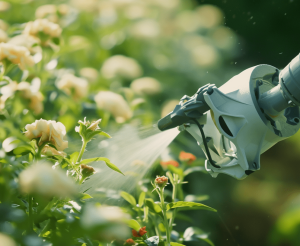
Some hemp farms cycle their use of fertilisers to help mitigate this, allowing the microbiome to replenish itself. But many don’t. Repeated seasons of soil depletion will eventually cause the land to become infertile. This is a short-sighted, unsustainable method of farming hemp. In contrast, organic hemp farming techniques achieve the opposite effects. Aerating and nourishing the soil with organic fertilisers promotes microbial well-being. In organic farms, the soil becomes darker, more prosperous, and healthier instead of being harshly depleted. In turn, the risks of erosion, soil infertility and nutrient depletion are minimised.
Preventing Agricultural Pollution
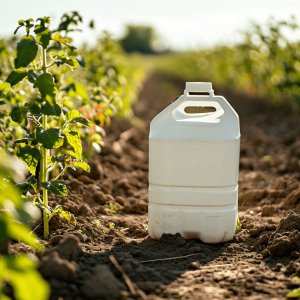
Hemp farming can have adverse environmental effects in many ways. Many pesticides or herbicides used in traditional hemp farms leech into nearby ecosystems and poison a variety of plant and animal life. This can happen in multiple ways. For instance, chemical sprays in the air will fall back to the earth. Rain then washes them into waterways. In turn, all life in the area will become contaminated due to relying on water sources for survival.
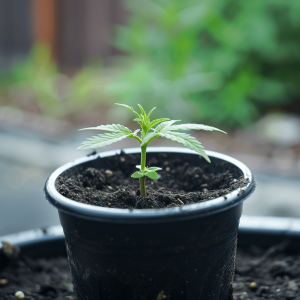
Research has proven that these pollution outcomes regularly occur in modern farming operations and are nearly unavoidable without abstaining from chemical use. Australian studies have also connected toxic pesticides and fertilisers to biodiversity loss, increased cancer rates, and wide-scale waterway pollution. Polluting the earth isn’t a requirement to produce high-quality hemp, however. It can be entirely avoided through organic agriculture. Organic farms don’t pollute their local ecosystems but rather enhance their well-being.
Resource Usage
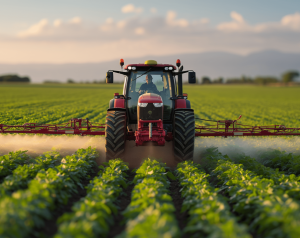
Farming in Australia is a significant contributor to energy consumption, water use and land usage. Agricultural activity, such as hemp farming, accounts for around 16% of Australia’s total carbon emission output. It also accounts for a staggering 55% of land use and 74% of water consumption at a national level. These are stunning figures when you consider the size of Australia and the abundant resources at its disposal. It underscores the vital need to find more sustainable farming approaches. Doing so can help preserve primary resources and lessen global warming impacts.
Organic hemp is produced with far fewer resources. Put differently, it’s more efficient. Organic hemp farms better manage water, soil, land, and energy consumption. Often, these farms are run carbon neutrally, meaning they aren’t contributing to global warming. Hemp plants are advantageous at sequestering atmospheric carbon (carbon dioxide). Farming hemp organically helps reduce global warming over time.
Agricultural Advantages
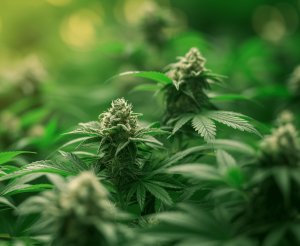
Organic hemp farming isn’t just about helping Mother Nature. It’s also a better agriculture system and helps farmers diversify their crop revenues.
These farms support more extraordinary biodiversity, with positive feedback loops on crop health and growth. Creating a balance with natural local environments keeps vital pollinators and sources of plant food in abundance. More research shows that having healthy forests, grasslands, or waterways near farms creates a synergistic growth effect for plant life. In other words, organic farms harness nature to help keep their hemp healthy.

In Australia, hemp is one of the ideal crops to select for organic farms. Its biology is well-suited to harsh environments due to its sturdiness and low upkeep requirements. Hemp is hardy and can survive Australia’s dramatic climate conditions. It doesn’t need much water to do well and can weather droughts well. It also has deep root systems that prevent erosion, keeping soil and water levels healthy.
Cultivating hemp allows more Australian farmers to adopt organic farming systems. The plant’s ability to regenerate and enrich soils helps it improve the land’s long-term yield. Its reliability also means that practices like rotating crops or using natural composts can be easily maintained.
Supporting Local Communities

Another critical advantage of organic hemp farming is supporting communities and grassroots economies. This is a lesser-known and often overlooked component of sustainability, but it is a core part of its principles. Organic farms require additional labour to run. This creates jobs and helps support local Australians. It also allows farmers to build trust, support, and community relationships.
Around Australia, a growing movement of community farmers’ markets, organic grocery cooperatives, and support for locally-made organic hemp products have flourished. Australian consumers are now very interested in understanding where their hemp or CBD products are from, how they’re made, plus whether they’ve been sustainably produced. It’s often a dealbreaker about whether an individual will purchase a particular item. Shoppers want to know and trust in what they’re buying. Hemp farmers who support these cultural shifts through organic practices are better positioned to succeed in Australia.
Conclusion
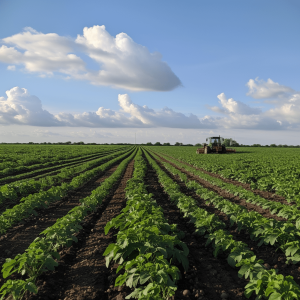
Around Australia, the organic movement will continue to gain momentum, creating more pressure on hemp farmers to get organically certified. More than ever, Australian consumers of hemp and CBD products are placing high importance on understanding their product’s origins. They want to ensure they aren’t contributing to the destruction of the environment or accidentally consuming harmful synthetic farming chemicals. In addition, a stronger desire to shop local, give back to the community, and source ethically contributes to this sentiment.
Yet consumer demand and market changes aren’t the only reasons behind the increase in the popularity of organic hemp. More Australian farmers recognise the advantages it offers as a crop. From reducing resource consumption to enhancing the well-being of soils and environments, organic hemp has multiple sustainability benefits. The future of this crop and industry is promising.
References
- Developer (2020). What is Certified Organic? [online] Bud Organic Club. Available at: https://www.budorganic.com.au/what-does-certified-organic-mean/.
- Natural Food Group. (2021). Australia – the world leader in organic agriculture. [online] Available at: https://natural-food.asia/australia-the-world-leader-in-organic-agriculture/.
- Australian Organic. (n.d.). Environmental Benefits of Organic. [online] Available at: https://austorganic.com/environmental-benefits-of-organic/#:~:text=Increased%20soil%20organic%20matter%20has
- Project, T.L. (2023). Research from The Rodale Institute Shows Organic Yields Produce Higher Yields Than Conventional During Extreme Weather. [online] The Livestock Project. Available at: https://www.cfsph.iastate.edu/thelivestockproject/research-from-the-rodale-institute-shows-organic-yields-produce-higher-yields-than-conventional-during-extreme-weather/#:~:text=This%20organic%20trial%20has%20shown.
- AUTHOR (2021). How Organic Farming Benefits The Environment | Australian Organic Food Co. [online] www.australianorganic.com. Available at: https://www.australianorganic.com/how-organic-farming-benefits-the-environment/.
- www.nzffa.org.nz. (n.d.). NZ Farm Forestry – Organics and farm forestry – a natural synergy? [online] Available at: https://www.nzffa.org.nz/farm-forestry-model/resource-centre/tree-grower-articles/august-2007/organics-and-farm-forestry—a-natural-synergy/
- The University of Sydney. (n.d.). Global analysis shows how pesticides leach into the environment. [online] Available at: https://www.sydney.edu.au/news-opinion/news/2023/07/13/global-analysis-shows-how-pesticides-leach-into-the-environment.html#:~:text=The%20study%20showed%20that%20730.
Author
Originally from Byron Bay (Australia), Steve Jacobs is a writer and expert on the world of hemp. His passion for hemp products developed from working with organic hemp cultivators and sustainable skincare brands in Byron. Inspired by these eco-friendly approaches to crafting superb products, Steve realised the opportunity at the intersection of aromatherapy, natural skincare and the magic of hemp. He founded Bondi Hemp to bring this dream to life, bringing rejuvenating hemp extracts, refreshing botanical hemp topicals and revitalising essential oils to everyday Aussies. True to his Byron roots, Steve infuses every drop of his responsibly produced hemp products with the rich terroir of the Byron Region, resulting in unsurpassed quality without harming the earth. Today, Steve continues to write and speak about hemp, skincare, and aromatherapy from his family’s home in Northern NSW.
